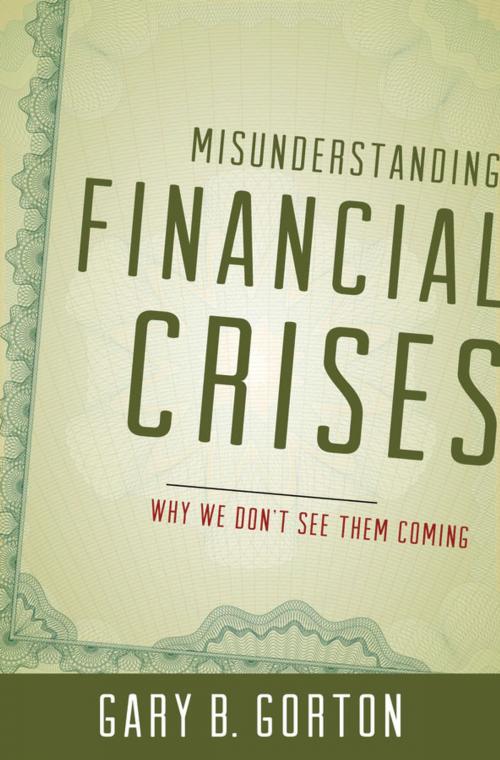Misunderstanding Financial Crises:Why We Don't See Them Coming
Why We Don't See Them Coming
Business & Finance, Economics, Macroeconomics| Author: | Gary B. Gorton | ISBN: | 9780199986880 |
| Publisher: | Oxford University Press, USA | Publication: | September 24, 2012 |
| Imprint: | Oxford University Press | Language: | English |
| Author: | Gary B. Gorton |
| ISBN: | 9780199986880 |
| Publisher: | Oxford University Press, USA |
| Publication: | September 24, 2012 |
| Imprint: | Oxford University Press |
| Language: | English |
Before 2007, economists thought that financial crises would never happen again in the United States, that such upheavals were a thing of the past. Gary B. Gorton, a prominent expert on financial crises, argues that economists fundamentally misunderstand what they are, why they occur, and why there were none in the U.S. from 1934 to 2007. Misunderstanding Financial Crises offers a back-to-basics overview of financial crises, and shows that they are not rare, idiosyncratic events caused by a perfect storm of unconnected factors. Gorton shows how financial crises are, indeed, inherent to our financial system. Economists, Gorton writes, looked from a certain point of view and missed everything that was important: the evolution of capital markets and the banking system, the existence of new financial instruments, and the size of certain money markets like the sale and repurchase market. Comparing the so-called "Quiet Period" of 1934 to 2007, when there were no systemic crises, to the "Panic of 2007-2008," Gorton ties together key issues like bank debt and liquidity, credit booms and manias, moral hazard, and too-big-too-fail--all to illustrate the true causes of financial collapse. He argues that the successful regulation that prevented crises since 1934 did not adequately keep pace with innovation in the financial sector, due in part to the misunderstandings of economists, who assured regulators that all was well. Gorton also looks forward to offer both a better way for economists to think about markets and a description of the regulation necessary to address the future threat of financial disaster.
Before 2007, economists thought that financial crises would never happen again in the United States, that such upheavals were a thing of the past. Gary B. Gorton, a prominent expert on financial crises, argues that economists fundamentally misunderstand what they are, why they occur, and why there were none in the U.S. from 1934 to 2007. Misunderstanding Financial Crises offers a back-to-basics overview of financial crises, and shows that they are not rare, idiosyncratic events caused by a perfect storm of unconnected factors. Gorton shows how financial crises are, indeed, inherent to our financial system. Economists, Gorton writes, looked from a certain point of view and missed everything that was important: the evolution of capital markets and the banking system, the existence of new financial instruments, and the size of certain money markets like the sale and repurchase market. Comparing the so-called "Quiet Period" of 1934 to 2007, when there were no systemic crises, to the "Panic of 2007-2008," Gorton ties together key issues like bank debt and liquidity, credit booms and manias, moral hazard, and too-big-too-fail--all to illustrate the true causes of financial collapse. He argues that the successful regulation that prevented crises since 1934 did not adequately keep pace with innovation in the financial sector, due in part to the misunderstandings of economists, who assured regulators that all was well. Gorton also looks forward to offer both a better way for economists to think about markets and a description of the regulation necessary to address the future threat of financial disaster.















